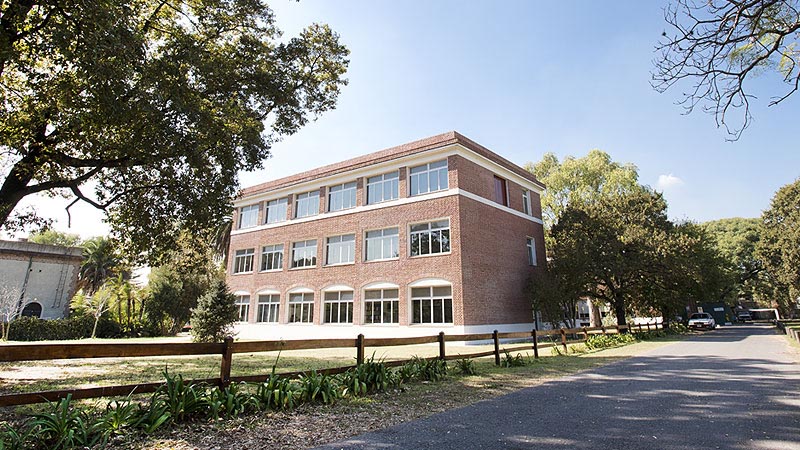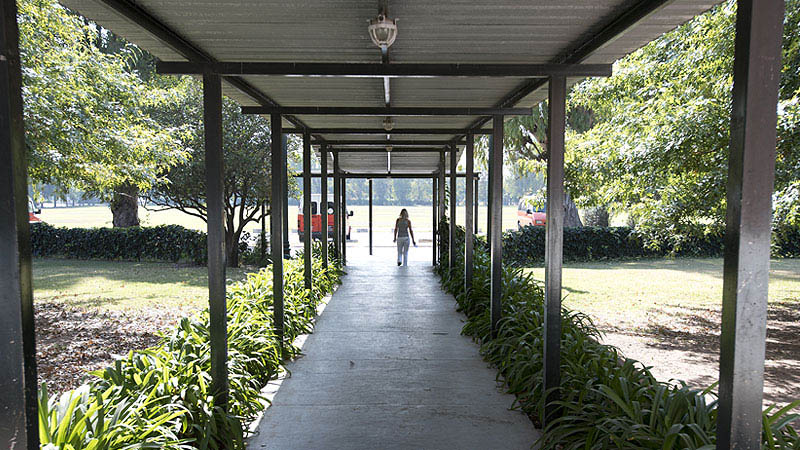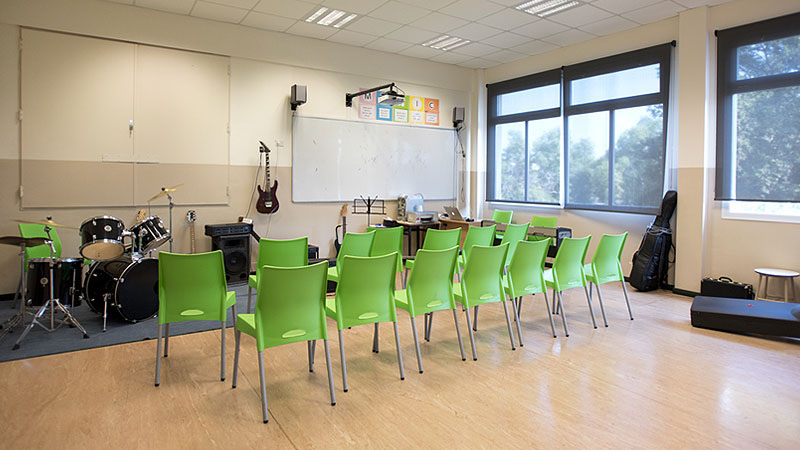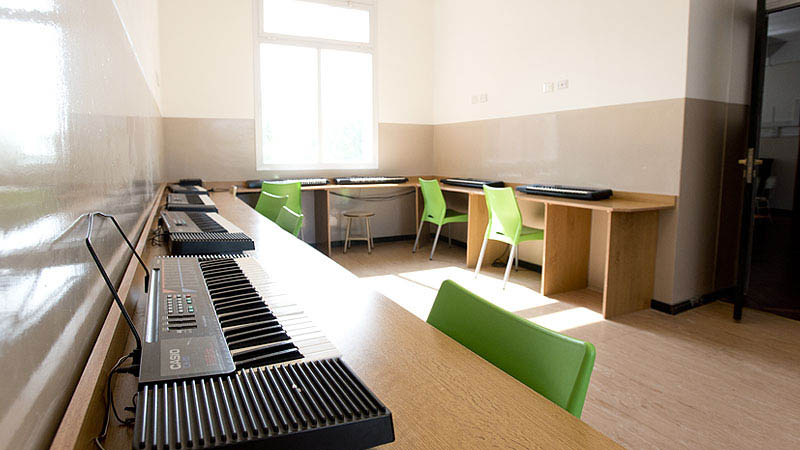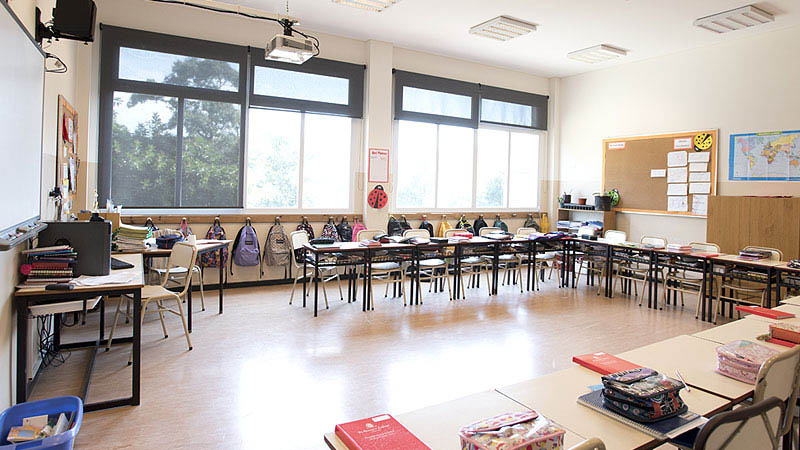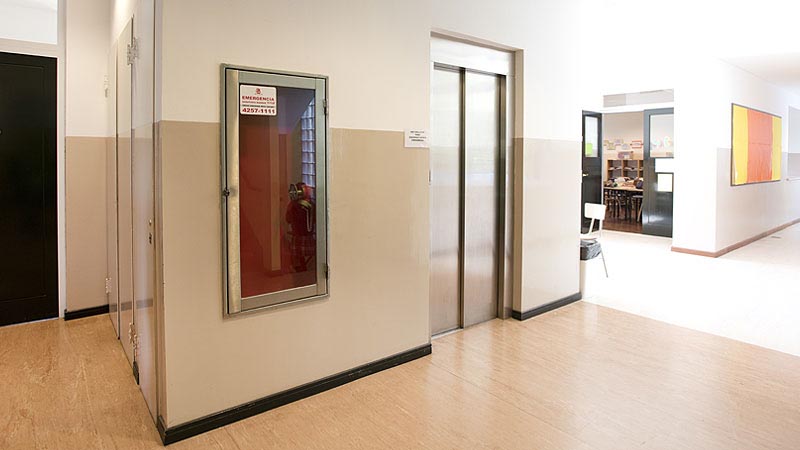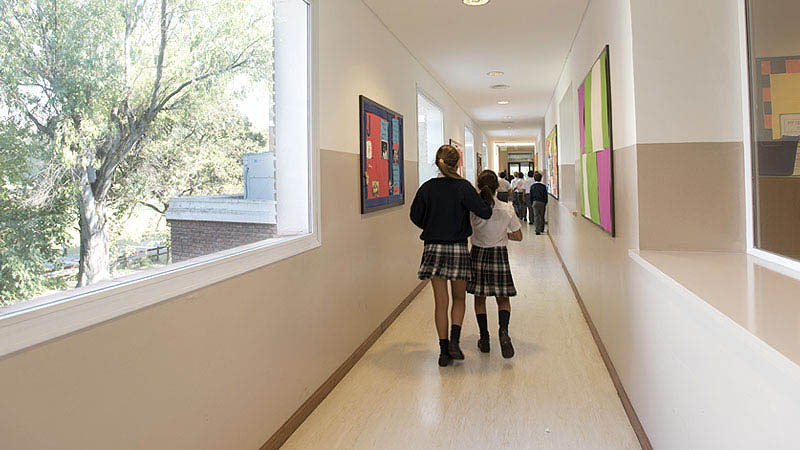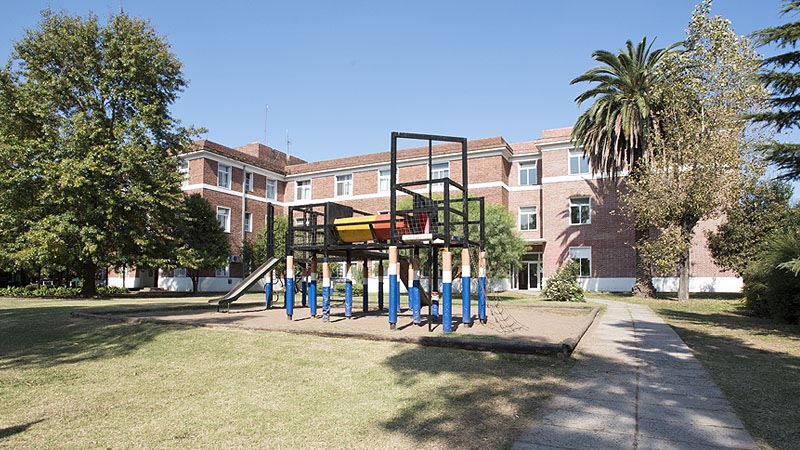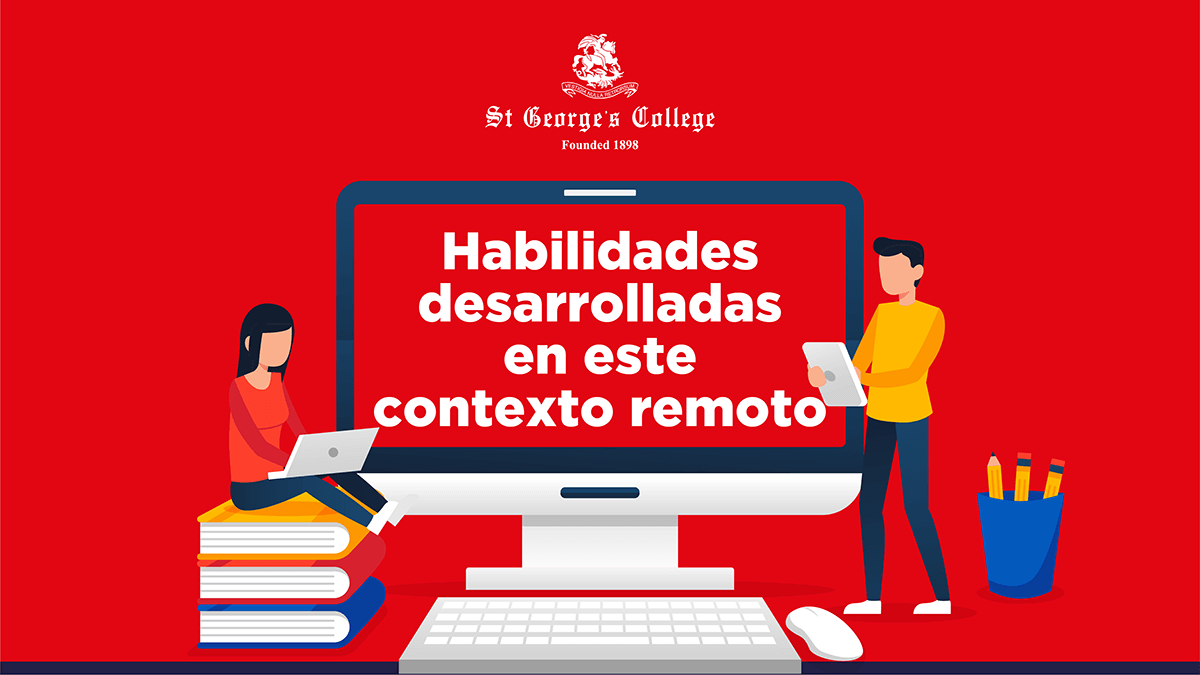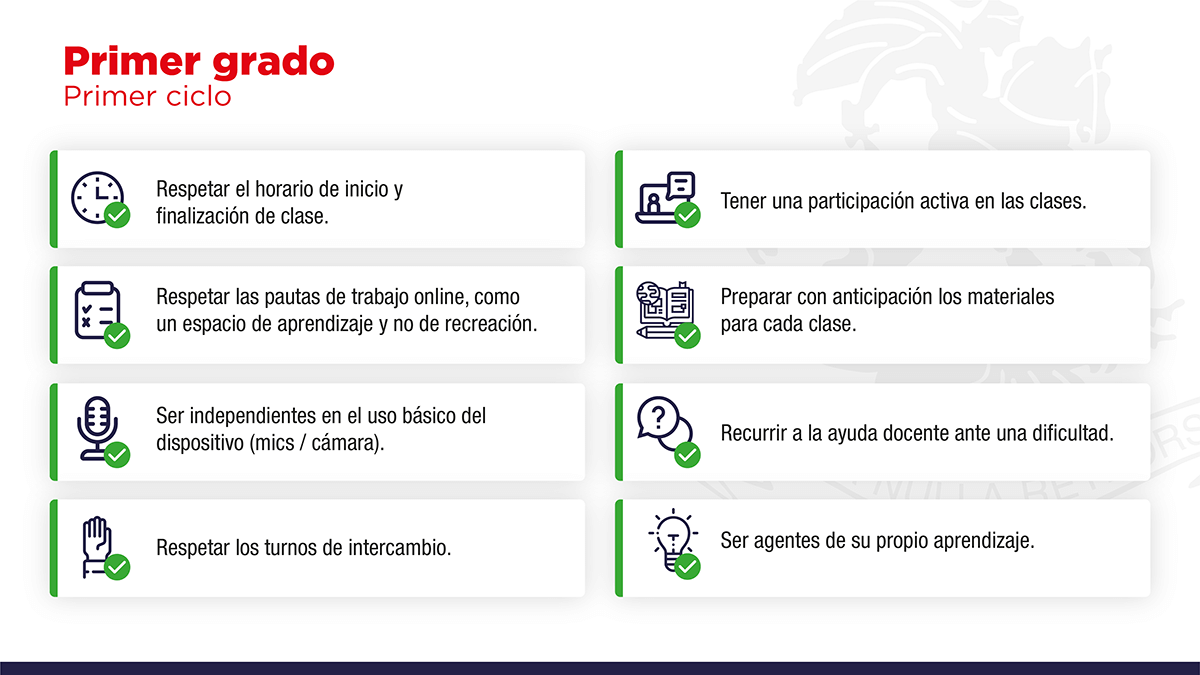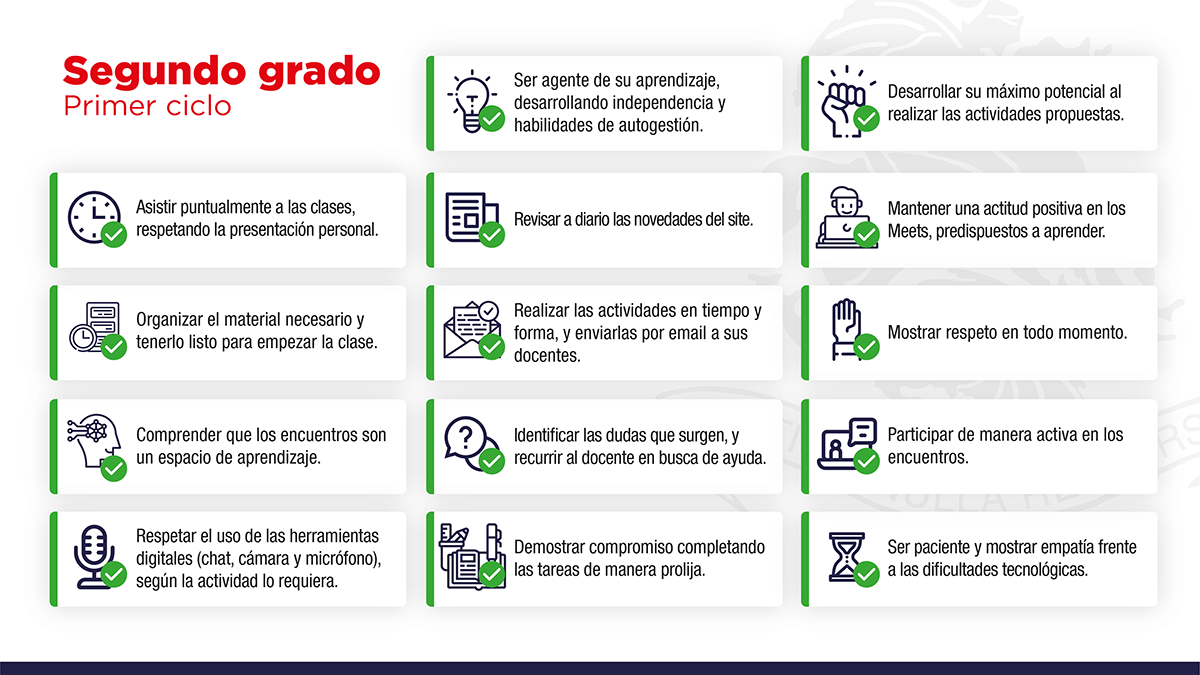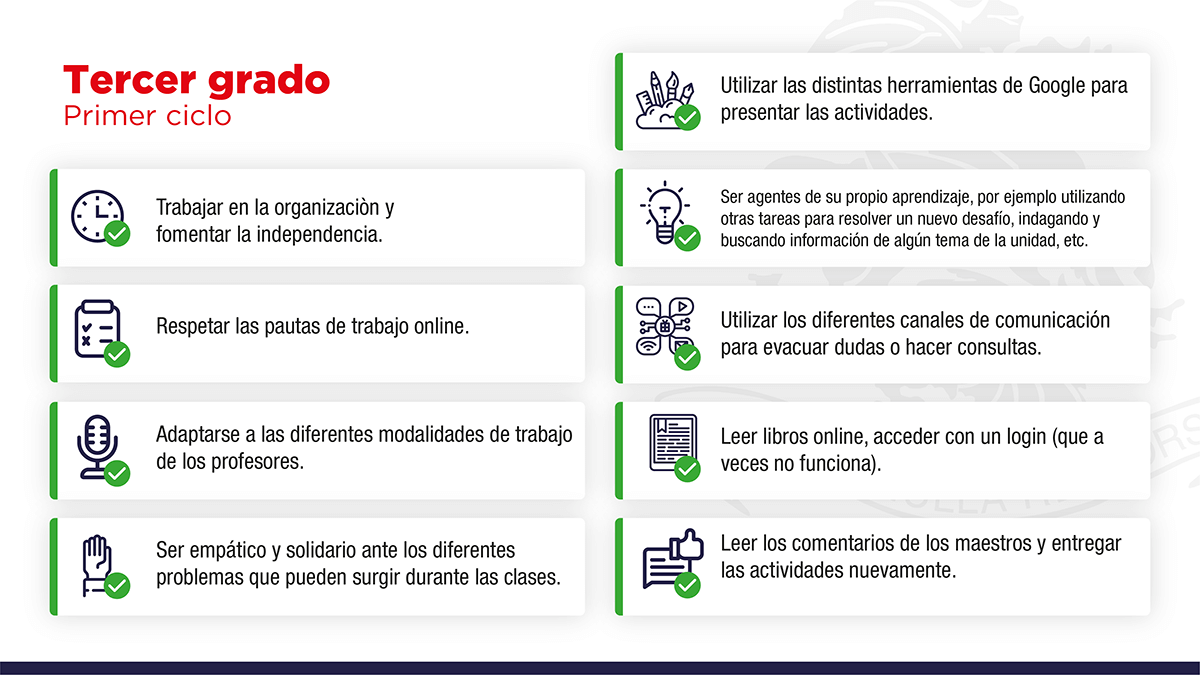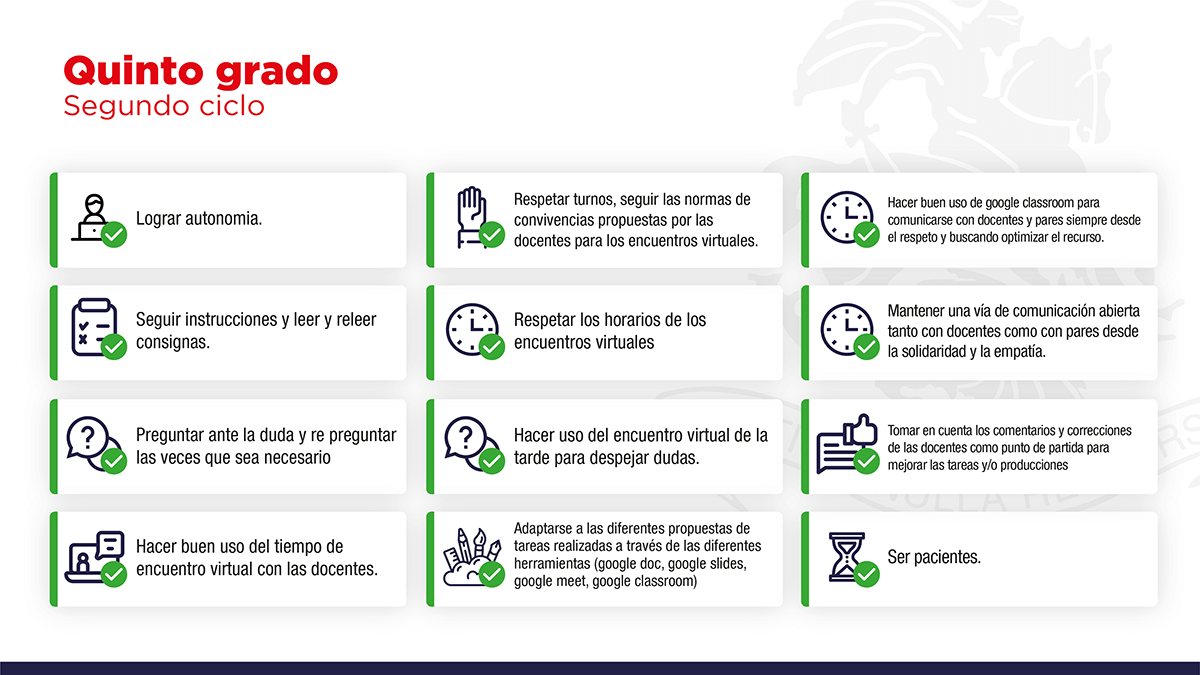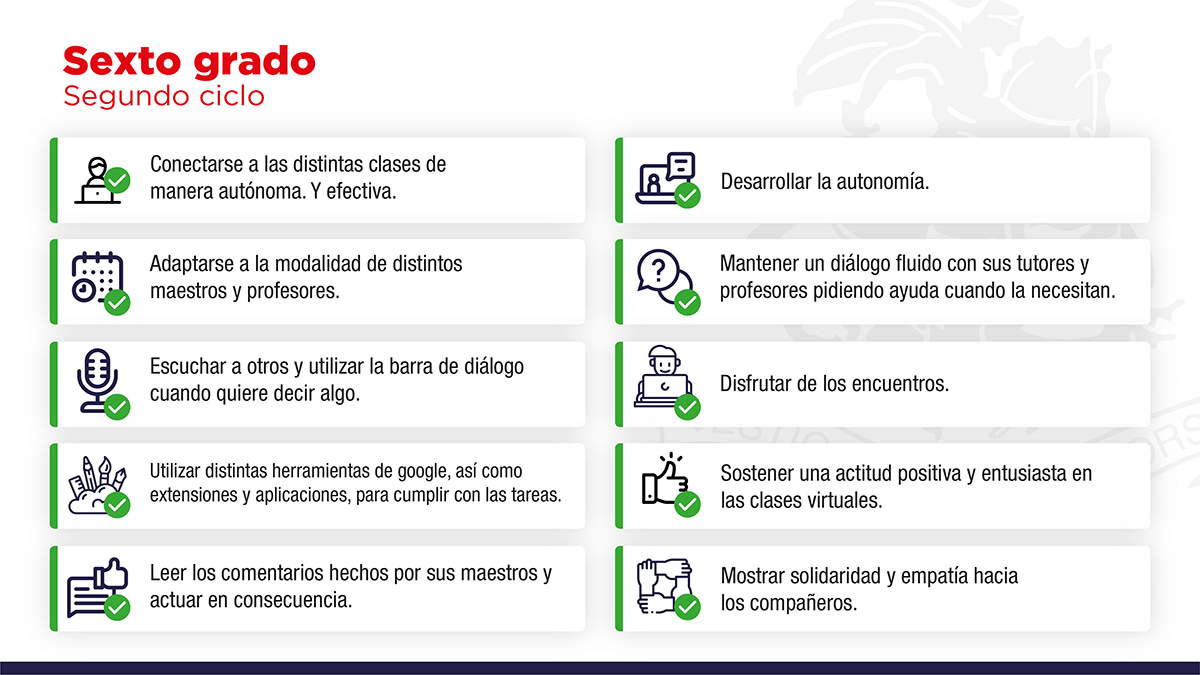Prep School
We are looking for students who are well-rounded, with a thirst for knowledge who will be responsible global citizens able to contribute towards a better world to embrace different cultures.
Facilities
Although the Primary School carries a deep tradition and historical meaning, the remodelling and investments in the last few years have transformed it in one of the best equipped schools in Argentina with the latest technological resources.
The infrastructure Master Plan started in the year 2011, which has as its purpose the development of the buildings in the school to cater for a better academic level at St George’s College.
Each student is the protagonist of his or her own learning process.
Prep School Programme -PYP-
The Primary Years Programme (PYP), for students aged 3 to 11, focuses on the development of the whole child, in the classroom as well as in the world outside, through other environments where children learn. It offers a framework that meets children’s several needs: academic, social, physical, emotional and cultural. The PYP defines the characteristics of students who are aware of and sensitive to the experiences of others.
Students will be able to:
We would like to create a community with the profile attributes that allow teachers, students and parents to work towards the St George’s vision.
These attributes are:
Our curriculum guarantees meaningful, relevant, interesting, challenging and stimulating learning so that students can reflect on the connections between life at school, home and the outside world.
For further information about the PYP (Primary Years Programme) please click here.
The School has a fully integrated school day. This begins in the Kindergarten and continues through the first six years of the Primary. The teaching of all subjects at St George’s is approximately 50 % conducted in English and the rest in Spanish. The school successfully combines the requirements of Argentine national curriculum with the ones from international examining bodies such as the University of Cambridge Local Examinations Syndicate and the International Baccalaureate organization. The Primary has an integrated bilingual concept-based curriculum.
The general running of the school, assemblies, announcements and activities are mostly done in English.
All year 6 students take a Cambridge English exam before finishing Prep. Most take the PET, although a small group who struggle with English, take the KET instead.
Learning Outcomes
St George’s College prepares students to be active and adopt a lifelong learning attitude, to demonstrate respect for themselves and for others, to be able to participate in the world that surrounds them.
The student and his/her responsibility in the learning process.
St. George´s College is one of the first institutions to implement the 3 Way Conferences, which gather Students, Parents and Teachers in a meeting that celebrates learning and allows the parents to know their children in action.
This type of informative meeting was first implemented on June 2012 with the year 4 group. The proposal consists in generating a meeting with the student as the axis and the teacher acting as a facilitator. Gradually the teacher reduces his/her intervention until it turns into another spectator of the student led conference.
In a 15 minutes meeting, previously scheduled by each family through an online calendar, each student presents a synthesis of their goals and achievements to his/her parents. For this, they have a portfolio which includes the most important productions made throughout the year. They share their work, debate on different points of view and approach the topics studied, interacting with their parents.
At the end of the student´s presentation, an action plan is made out in cooperation with the parents, focusing on those areas that need to be improved.
As a closing of this meeting, each student guides his/her parents through the school premises and especially those areas of their interest. Their favorite destinations are the Computing Lab and the Art Room where they can proudly show their work.
This new type of meeting has been greatly accepted by the parents who were able to discover aspects of their children´s personality only revealed in the classroom context while they present their productions, defend their ideas and reassure their profile.
What is a Three Way Conference?
It is a parent-teacher-student meeting involving an active participation of the students, who work with their parents and teachers, to evaluate and reflect on their learning. It is an opportunity to show the development of skills and attitudes in a real situation.
Why conduct a Three Way Conference?
It involves students in a reflection process which helps them recognize their strengths and areas that need developing, facilitating their independence. It allows them to take the leading role in their own achievements and helps them commit with those issues that they choose to improve. It develops communication and organizational skills.
What is expected from parents?
Be punctual. If the students remain silent, ask them, encourage them, and go with them during the tour. At the end of the conference, you will be able to leave a comment on what you have experienced. You will receive a simple questionnaire to express your feedback about the aspects that you consider need to be improved.
St George’s College offers to our children the opportunity of interacting with other teachers and students in the area known as “Workshops” which takes place every Wednesday during the period.
This activity referred to as “learn with others”, is approached in a more playful way, allowing the development of aptitudes and skills such as creativity, which is used as a main tool in their daily work.
Workshops
| Workshops | Description | Grades | Materials | Students per workshop |
|---|---|---|---|---|
| Master Chef | Cooking is an art where we transform different food into recipes and where children will have the opportunity to see how they are made. | 5 & 6 | Apron, Chef’s Hat (if available), Dishcloth, Copybook for recipes, 1 medium size tupper | 20 |
| Cookery | Students will cook different recipes in the dining room that they can share afterwards at home. | 1 & 2 | Apron, Chef’s Hat (if available), Dishcloth, Copybook for recipes, 1 medium size tupper | 20 |
| Let’s do Maths | Carry out Math challenges to be solved in groups. Internal mini Olympic quiz. | 3 & 4 | IPAD / Tablet, Pencil box, Download Classroom app | 20 |
| Taekwondo | Instruction in this martial art. Extra cost for exams and clothes. | 1 to 6 | 20 | |
| Football School | Football school for boys and girls led by ex-professional football player. | 1 to 3 | No limit | |
| Karate, Judo and Self Defense | Instruction in this martial art. Extra cost for exams and clothes. | 1 to 6 | 25 | |
| Keyboards | Instrumental practice with keyboards | 3 to 6 | Headphones | 7 |
| Cricket | Cricket practice | 4 to 6 | 30 | |
| Manos Solidarias Workshop | Students will make handicrafts to raise funds for community service organizations like Filochicos, Casa del Niño, Hogar Evangelina. | 5 | 20 | |
| Movie Time | We will be working with several movies and short films. After watching the children will carry out promotional poster designs, alebrijes, watercolour painting, modeling characters in plasticine and models out of waste materials. | 1 to 3 | Block EL NENE N°5 (white pages), Pencil box with scissors and glue | 25 |
| Just Dance | We will dance to different songs and learn different choreographies. | 1 to 3 | Willingness to have fun | 10 |
| Collage | This workshop uses paper of many different textures, sizes and shapes in a variety of ways. Students can exercise fine motor skills and create their own designs. | 1 to 3 | 15 | |
| Doll Dress Making | In this workshop we will make clothes and accessories for SMALL dolls or teddies. It is focused so that they can build up their imagination while creating their own designs. Children will develop their fine motor skills to share as well as to create. | 2 to 5 | Needles & thread, Fabrics and small cuts, Buttons and Scissors, Small doll or teddy, Whatever extra materials you consider conveniente will be welcomed and made good use of. | 20 |
| Yoga & relaxation for children | Yoga for children can be a good option to merge play with relaxation, concentration and balance. Through yoga, they will exercise their breathing and learn to relax, adopting a calm attitude, reducing tensions and facilitating their concentration and self-control. | 1 to 3 | Yoga mat | 15 |
| iPad Apps | Students will explore and learn how to use and evaluate different applications on their devices. | 5 & 6 | Ipad / Tablet | 10 |
| Crochet | Crochet teaches you the ability to visualize a project, and then work on it to complete it. It allows you to achieve mindfulness. | 5 & 6 | Different coloured “choricero” threads, Coloured medium size wool, Crochet needles Nº 4 o 4,5 | 15 |
| Tocata | Rugby techniques. | 4 to 6 | 20 | |
| Fun with PET | Relaxed and playful practice for the PET exam. |
Exclusively by invitation
|
13 | |
| Re-used Art & Craft club | Students will use a range of materials to create different pieces of upcycled artwork to take home. Students will have fun and be creative! | 1 to 4 | (we will try to re-use unwanted materials from home & school), Bag of wooden lolly sticks, White glue, String/wool/thread, Beads/buttons/ shells, Tempera paint, Old paper/card bags, Old socks, 10 paper plates, (Bring pencil case with colours and scissors) | 15 |
| Photography | Students will be taught basic features of taking photos, and sometimes they will be shown special apps or techniques that help while talking photos. They will be given weekly themes to follow (nature, people, faces, etc). | 4 to 6 | Tablet | 15 |
| French | The students will learn the basics of the French language through games, songs and fun activities. They will also learn about the culture of France and other French-speaking countries. | 5 & 6 | Copybook, Pencil box | 10 |
| PET / KET | Relaxed and playful practice for PET/KET exams. | 6 | 13 | |
| Language Workshop- Spanish | From creative activities we’ll work those aspects of the language that will promote greater autonomy and security in the skills of the student. | 2 to 5 | Pencil box, Lined copybook, Story books | 6 |
| Language Workshop – English | From creative activities we’ll work those aspects of the language that will promote greater autonomy and security in the skills of the student. | 1 to 6 | Pencil box, Lined copybook, Story books | 7 |
| Handling emotions! | Emotional education workshop for children in the first cycle. We will play games to learn to manage emotions, creation of stories, use of videos and other resources. Application of Mindfulness and Educational Coaching. | 1 to 3 | Pencil box, Desire to experiment with emotions | 10 |
| Stop Motion | We will shoot a short movie using stop motion technique with modelling clay. | 3 to 5 | Plasticine, Wire, Different materials to create background scene (fabrics, buttons, etc), Big carton box, iPad / Tablet | 15 |
| Yoga & mandalas | In this workshop, the students will have the opportunity to exercise their breathing and learn to relax, making different positions that also help to improve the lack of concentration. The search for balance and harmony is a good basis for children to enjoy a happy and healthy adult life in the future. The class is divided into three moments: relaxation, postures, mandalas and reflection. | 4 to 6 | Pencil box, Sports clothes | 20 |
| Zentangle | The Zentangle method allows creativity to flow freely. With a simple step by step we forget the expectations and the error to concentrate on each line, moment by moment. Drawing practice is simplified and trust is slowly gained which helps eliminate self-criticism. Thus we manage to give free rein to our creativity fighting dispersion. This technique helps us to develop our concentration ability, improves our stroke and at the same time achieves the quieting of the mind. Do you need to know how to draw? No. This course is prepared for beginners. It is not necessary to have any prior knowledge or know how to draw. | 5 & 6 | 1 Pizzini felt tip pen 0.2, 1 Pizzini felt tip pen 0.6, 1 Blender Pen, 1 Black pencil 2B, 1 White gel pen, 1 Compass with pencil holder, 1 Drawing block A5 | 10 |
Distance Learning
In this new virtual mode we continue working and learning together, developing our agency as apprentices, within the framework of what our educational programme upholds: form students to undertake responsibility in their learning process and develop abilities to deal with a world in continuous change.

